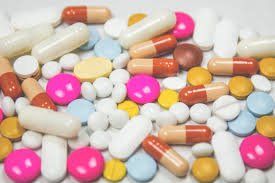This is an automatically translated article.
Pharyngitis is one of the diseases related to the respiratory tract and is common in many people. If the disease is not treated in time, it can lead to serious complications that affect health. Understanding the characteristics of the disease is essential to help each person be more proactive when it comes to disease prevention and treatment.
1. What are the characteristics of sore throat and sore throat?
1.1. What is pharyngitis? Pharyngitis is a phenomenon in which the lining of the throat is infected and damaged due to the impact of different factors. These include bacteria, viruses, environmental pollution and toxic chemicals.
Sore throat disease can occur with many different ages. However, the following people will be at greater risk of contracting the disease:
● Children, infants: Usually with young children, the immune system is still weak. Therefore, foreign agents will easily penetrate and cause sore throat.
● Pregnant women: This subject will easily get sore throat during the first 3 months and the last 3 months of the fetus.
● People with respiratory diseases, such as tonsillitis, rhinitis, people with colds.
1.2. Pharyngitis symptoms are divided into two main types: acute and chronic pharyngitis. Accordingly, each level of disease is presented with different symptoms and signs.
❖ Symptoms of acute pharyngitis :
Your body has a high fever from 39 to 40 degrees Celsius, poor sleep, chills and aches in the body.
● Dry and hot throat area and accompanied by symptoms of sharp pain and burning pain.
Dry cough.
Voice is hoarse.
Nasal congestion, runny nose.
● Throat is congested, red and swollen.
● Both sides of the tonsils are swollen, the surface is covered with white or transparent mucus.
● Neck is swollen and painful.
● If sore throat occurs due to bacteria, the patient will have a headache, the body will be tired.
❖ Chronic pharyngitis symptoms :
Symptoms and signs of chronic pharyngitis will usually progress slowly and tend to be persistent. Chronic patients will experience symptoms including:
● The throat will be itchy, burning and dry.
● Throat will feel stuck, especially after waking up.
● Coughs are worse when the weather turns cold or at night.
● Choking when swallowing food.
Occasional hoarseness.
The mucosa of the throat is red, with transparent mucus.
● The throat wall is thick, red, and has red or pink granules and is more prominent than the surrounding mucosa.
● It is easy to get nauseous and the throat will always be sensitive.
When chronic pharyngitis occurs for a long time, it will turn to atrophic pharyngitis. At that time, the lining of the throat will have many small blood vessels, the throat is wide and smooth.

Để xác định được cách chữa viêm họng cần tìm ra nguyên nhân gây bệnh
1.4. What medicine to take for sore throat? During the changing seasons, it is very easy to get a sore throat (pharyngitis) due to a viral infection (cold or flu) or bacteria. This condition usually resolves on its own after 3-7 days, but the patient must endure pain, dry throat, swallowing saliva, eating, and communicating are also more difficult.
In addition to applying home remedies, you can find some effective sore throat remedies as suggested below. Don't forget to consult your pharmacist or doctor before taking!
❖ Over-the-counter pain relievers and anti-inflammatory medications
Various over-the-counter (OTC) medications can help ease a sore throat. You can find medicines that contain the active ingredients paracetamol or ibuprofen. These medicines can also reduce fever if your sore throat is caused by an infection (viral, bacterial). Avoid giving aspirin to children and adolescents because it can lead to Reye's syndrome.
If you have other health problems or are taking other medications, consult your doctor before taking any over-the-counter medicine.
Medicines to support the treatment of stomach diseases
Besides the cause of bacterial or viral pharyngitis, a sore throat can also be a "follow-up" condition of gastroesophageal reflux disease (GERD) or inflammation. stomach ulcers . So, if you don't have a fever but often feel a burning sensation in your throat, don't know what medicine to take if you have a sore throat, don't try to treat it yourself, but quickly go to the hospital to have your digestive system checked.
Some medications people with GERD can take are:
Antacids
H2 blockers
Proton pump inhibitors (PPIs)
Medicines to treat accompanying symptoms
If your sore throat If accompanied by symptoms such as cough, sputum, postnasal drip..., you definitely need to be treated in parallel with some over-the-counter drugs such as:
Antihistamines for sore throat caused by allergies, anti-inflammatory expectorant is to reduce the duration of cold symptoms. If you have a cold, try sucking on zinc tablets every 2 hours, preferably within 48 hours of the first signs of a cold.
❖ Antibiotics for acute pharyngitis
Some common antibiotics prescribed for acute pharyngitis are:
● Penicillin: Usually in the form of oral or injectable drugs to help fight bacteria, reduce inflammation, and inhibit the growth of bacteria. of bacteria. It should be noted that this drug is not suitable for pregnant women, people with a history of stomach, kidney, liver disease.
● Amoxicillin: Highly effective in the treatment of pharyngitis caused by bacteria, inhibiting the formation of pathogenic factors. People who should not use this medicine are people with kidney or liver disease, women who are breastfeeding or are using birth control pills.
● Erythromycin: An antibiotic belonging to the macrolide group that has a bactericidal effect through inhibiting protein formation. The drug is usually prescribed after eating in oral and injectable form (when severe). The drug is contraindicated for people with cardiovascular diseases or allergic to its ingredients.

Sử dụng thuốc kê đơn của bác sĩ là một trong các cách chữa viêm họng
2. How to cure sore throat at home
Sore throat is a manifestation of pain, itching or discomfort in the throat. A sore throat is a typical symptom of a sore throat. It may get worse when you try to swallow, and will have trouble swallowing food and liquids.
Even if a sore throat is not severe enough to warrant a visit to the doctor, it is still painful and can keep you from getting a good night's sleep. Fortunately, you can use home remedies to help ease the pain and irritation.
Here's how to cure sore throat at home at home:
2.1. Gargle with salt water Gargling with warm salt water can help soothe an itchy throat. Salt pulls mucus out of swollen, inflamed tissue and helps relieve discomfort. The
Mayo Clinic recommends combining 1/4 to 1/2 teaspoon of table salt with 4 to 8 ounces of warm water. Stir until the salt dissolves. Then gargle for a few seconds and spit it out. Repeat the salt rinse several times per day.
2.2. Throat lozenges Some over-the-counter (OTC) throat lozenges contain menthol, an ingredient that can slightly numb the tissues in your throat. This may provide temporary relief from pain and burning sensation. For a short time, candy can also have the same effect.
Candy and cough suppressants increase saliva production and keep your throat lubricated. However, cough drops and lozenges won't soothe your sore throat for as long as lozenges or soothe it as effectively, and you may find yourself in need of relief soon again.
Avoid giving lozenges or cough drops to young children. Both types present a choking hazard.
2.3. Try OTC pain relievers According to the Centers for Disease Control and PreventionTrusted Source , viruses cause most sore throats. Over-the-counter nonsteroidal anti-inflammatory drugs (NSAIDs) such as ibuprofen (Advil, Motrin IB) or naproxen (Aleve) can reduce inflammation and swelling in your throat. They can also reduce soreness or itchiness.
2.4. Enjoy a drop of honey Warm tea mixed with honey can help soothe your irritated throat. The tea also helps you stay hydrated, which is another important step in treating a sore throat. Drink a cup the next time the sore throat begins to show signs of sore throat.
You might consider choosing green tea, which is antibacterial, pain-relieving and rich in antioxidants and helps reduce inflammation.
Honey has another benefit when you are sick. Research shows it to be an effective cough suppressant and works similarly to over-the-counter cough suppressants.

Trà ấm pha với mật ong là một trong các cách chữa viêm họng tại nhà đơn giản
2.5. Sprays Use several sprays that contain a combination of echinacea. A study in the European Journal of Medical Research Trusted found that this herbal remedy soothes a sore throat as well as an over-the-counter sore throat spray.
2.6. Stay hydrated Drinking enough water is an important part of treating a sore throat. When you're dehydrated, your body can't produce enough saliva and mucus to keep your throat naturally lubricated. This will make the swelling and inflammation worse.
Water is a good choice, as is warm tea or warm soup. However, hot tea or hot soup can really burn your already sensitive throat and make matters worse
2.7. Use a humidifier Breathing in moist air will help soothe swollen tissues in your nose and throat. Turn on a cool mist humidifier to increase the amount of humidity in your room. You can buy a humidifier at most grocery and retail stores.
2.8. Take a sauna If you don't have a humidifier, you can still cool down the humid air. Inhale the warm steam from the shower to help reduce swelling and pain from sore throats.
You can also create steam by running very hot water into the sink. Cover your head with a towel and lean into the tub to breathe in the steam. Continue to breathe deeply for a few minutes and repeat as needed to relieve a sore throat.
2.9. Raise your head When a stuffy nose is accompanied by a sore throat, place a pillow or two under your head. The extra height will help you breathe easier. Once the congestion clears up, you won't have to open your mouth while you sleep, which can dry out your throat and make it worse.
2.10. Get a prescription Viruses cause most sore throats, but sometimes the culprit can be bacteria like strep, which causes sore throats. If your sore throat doesn't improve or gets worse or you're running a fever, see your doctor to get tested for strep. You may need an antibiotic.
Since most sore throats are caused by viruses, you need to try to rest and eat healthy, "powering" your immune system to fight the infection. Choose soft foods and drinks that aren't too cold so you don't irritate your throat further. If a loved one has a sore throat, the best way for you to prevent the disease is to wash your hands often before eating or after coming into contact with an infected person, and not sharing personal items and utensils. Don't forget to improve your health every day through proper nutrition and exercise!
Please dial HOTLINE for more information or register for an appointment HERE. Download MyVinmec app to make appointments faster and to manage your bookings easily.













